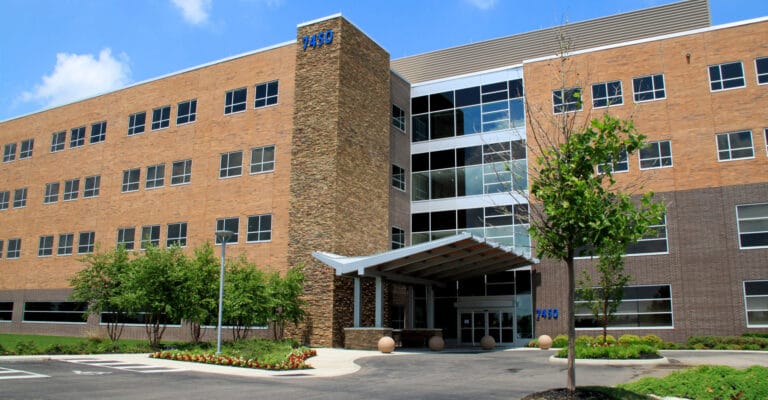When an egg is fertilized, in order for the pregnancy to grow correctly and to be successful, the fertilized egg must travel down into the uterus and implant itself in the uterine wall. Sometimes, though, this doesn’t always happen, and fertilized eggs can grow inside one of the fallopian tubes. This is a serious problem referred to as an ectopic pregnancy. Because a fertilized egg has no chance of growing properly outside the uterus and can cause serious problems, ectopic pregnancies must be treated immediately before they can cause serious damage. This page explains the basics about ectopic pregnancies and how they can be treated.
WHAT IS AN ECTOPIC PREGNANCY?
An ectopic pregnancy is a condition where a fertilized egg does not make it to the uterus and begins to grow somewhere other than the uterus, usually in the fallopian tube or, rarely, attaches to an ovary or another organ in the abdomen. Ectopic pregnancies must be treated immediately because as the egg grows, the fallopian tube can rupture resulting in serious internal bleeding. If the ectopic pregnancy is diagnosed very early, it can be treated with medication. However, if the fallopian tube bursts before the ectopic pregnancy is diagnosed, the fallopian tube may need to be removed which may reduce a woman’s chance of conceiving in the future.
WHO IS AT RISK FOR AN ECTOPIC PREGNANCY?
It is possible for any sexually active woman of childbearing age to experience an ectopic pregnancy. It is oftentimes more prevalent in women who have abnormal fallopian tubes. The following conditions can cause abnormal fallopian tubes:
- Previous ectopic pregnancy
- Infertility
- Pelvic inflammatory disease
- Pelvic or abdominal surgery
- Prior tubal surgery
- Sexually transmitted diseases
- Endometriosis
These conditions cause scarring of the fallopian tubes which reduces the chance of a fertilized egg from reaching the uterus. Smoking and older age can also contribute to ectopic pregnancies, as well as if a woman’s mother was exposed to the drug DES while she was pregnant.
WHAT ARE THE SYMPTOMS OF AN ECTOPIC PREGNANCY?
Symptoms of an ectopic pregnancy can be similar to those of a normal pregnancy. These include breast tenderness, nausea, and increased sense of smell. Along with normal pregnancy symptoms, an ectopic pregnancy may produce some of these additional symptoms:
- Abdominal or Pelvic Pain: This pain usually occurs on one side of the stomach, and can be a sharp, aching, or cramping pain without relief. The pain may also come and go.
- Abnormal Vaginal Bleeding: This is heavy or light bleeding that occurs during a month when you are not on your menstrual period.
- Weakness, fainting, or dizziness: These symptoms can occur from blood loss.
- Shoulder Pain: If the fallopian tube ruptures, blood builds up in the stomach under your diaphragm (which is between your chest and stomach). This can cause pain that is felt in the shoulder.
It is important to call your doctor immediately if you experience any of these symptoms.
HOW IS AN ECTOPIC PREGNANCY DIAGNOSED?
If your doctor thinks you have an ectopic pregnancy, immediate testing will be necessary. A pelvic exam and an ultrasound may be performed, in addition to blood tests. An ultrasound uses ultrasonic waves which produce a picture of your internal organs on a screen. This will help your doctor determine any signs of pregnancy. The blood tests will specifically test for the hormone human chorionic gonadotropin (hCG), which is present in your body during pregnancy. If you are pregnant and the hormone levels don’t increase as they normally should, you may be at risk for an ectopic pregnancy.
HOW ARE ECTOPIC PREGNANCIES TREATED?
If your doctor diagnoses an ectopic pregnancy, there are two methods of treatment:
Medication: If the ectopic pregnancy has been detected early, medication can be prescribed to halt the growth of the egg to allow the body to absorb it over time.
- Methotrexate: Methotrexate is the drug most commonly prescribed to treat ectopic pregnancies. It directly causes the cells to stop growing, and after being injected, it takes around 4-6 weeks to take effect. Before it is administered, your doctor will order blood tests, including hCG levels and possibly liver function tests. Your physician will monitor your hCG levels by ordering serial hCG blood tests to be done on days 4, 7, and weekly after the drug is administered. If by the 7th day after your hCG levels have not started dropping, your doctor may suggest another dose or surgery.
- Risks and Side Effects of Methotrexate: While undergoing Methotrexate therapy, you will need to avoid:
- Sex
- Alcohol
- Folic acid
- Non-steroidal anti-inflammatory drugs (NSAIDs) such as ibuprofen
- You may have certain side effects, such as vaginal bleeding, abdominal pain, dizziness, nausea, and diarrhea. However, if you experience severe pain, heavy bleeding, rapid heartbeat, dizziness, or fainting, see your doctor immediately.
Surgery: If the ectopic pregnancy is small and the tube is intact, a doctor may perform a laparoscopy to get rid of the pregnancy. During the laparoscopy, you will be under general anesthesia, and your doctor will make a small incision below your navel. He or she will then insert a slender, telescope-like device into the incision to look at the internal organs. Sometimes, all or part of the tube may need to be removed. If the tube has ruptured, emergency surgery will need to be performed to prevent blood loss. This surgery may be either a laparoscopy procedure or an open incision. Usually, the ruptured tube will have to be removed.
IN CONCLUSION
Although you may want to remain pregnant and have the baby, it is not possible with an ectopic pregnancy. If left untreated, they can cause serious, life-threatening internal hemorrhage. If you experience any of the symptoms of an ectopic pregnancy, it is important to contact your doctor immediately. Immediate intervention can help to prevent serious complications.







